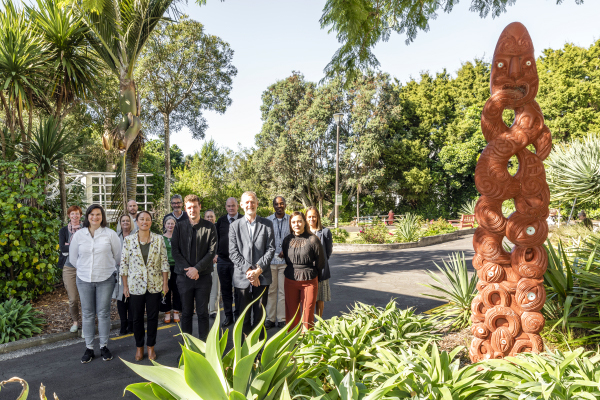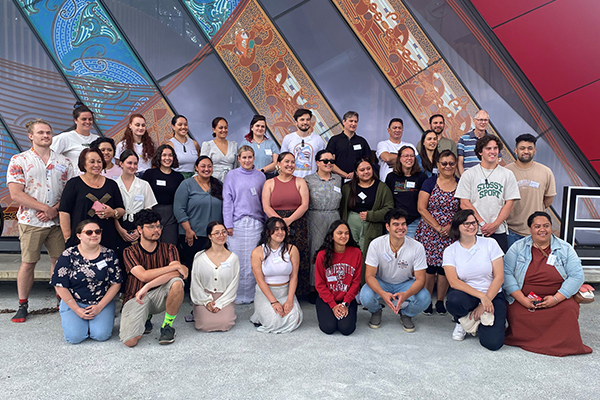Medium-Large Organisation Winner

To ‘tono’ to someone means to invite or request, commonly used as an invitation to participate in an important event.
When Plant and Food Research New Zealand (PFR) decided to develop a strategy that will enable the organisation to build stronger partnerships with Māori in research, science, and innovation and champion a culture of diversity and inclusion, the first tono was from CEO David Hughes to the organisation’s first group general manager Māori, Stacey Whitiora.
The Crown Research Institute set about improving Māori capability in the senior leadership team to ensure it was fit to partner with Māori. It recognised that mātauranga Māori and the huge stores of indigenous knowledge around te taiao and sustainable practice is crucial in food and plant research.
Not long after her appointment, Stacey, with support from the Māori strategy, partnerships and enterprise team, developed and launched the TONO strategy.
“Māori are severely under-represented in the research, science and innovation workforce,” says principal advisor Te Aue Addison, an advisor and strategist with more than 10 years’ experience working in central government, local government and the private sector.
“The TONO strategy is a 10-year evolving strategy split into three phases, Tono, Wheako, and Huatahi, to authentically strengthen relationships with Māori and champion diversity and inclusion from leadership down.
The vision for the strategy is to work together with Māori towards a future where mātauranga Māori and science together evolve research and innovation opportunities for Aotearoa New Zealand.
The first phase includes building staff understanding of te ao Māori, investing in rangatahi initiatives such as the Te Rito education pathways programme, and celebrating te ao Māori in their work.

“This has and will continue to enable PFR and its staff to discover what motivates Māori, avoid miscommunication, navigate any cultural differences and champion a culture where diverse backgrounds and experiences are celebrated,” says Te Aue.
She says that while the general manager Māori position demonstrates delivery of Māori leadership outcomes starting at the executive level, PFR’s commitment to TONO is also reflected in two new appointments to the board of directors, increasing Māori representation at the governance level. Additionally, between 2019 and 2023, their Māori workforce has doubled across science and general staff roles.
Elsewhere, the te ao Māori capability framework is spanning all levels of the organisation, from PFR’s chief scientist embedding a co-leadership model across science portfolios, to the chief legal counsel developing taonga and mātauranga Māori principals to guide work.
The TONO strategy has filled a much-needed gap in the organisation, says Te Aue.
“The strategy is simple and digestible in nature but allows for growth, challenge, and change in all the right spaces,” she confirms. “The trajectory in which the organisation is heading is promising.





